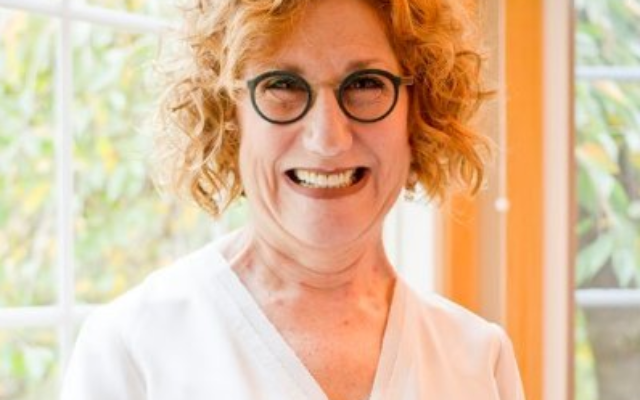First Female Cantor Sings a Difficult Tune
Barbara Ostfeld will discuss her book and conduct the Shabbat service at 7:30 p.m. Feb. 7 at Temple Emanu-El and lead a free concert atFeb. 9 at Temple Beth Tikvah in Roswell.

In 1975, Barbara Ostfeld walked down the broad marble center aisle of Temple Emanu-El in New York City to become ordained as the first woman cantor in the 2,000-year history of rabbinic Judaism. It was a high-profile role for which she now admits she was not fully prepared. In her newly published memoir “Catbird: The Ballad of Barbi Prim” she recounts the difficult life she endured as a pioneering figure in American Jewish life.
Ostfeld will discuss her book and help conduct the Shabbat service at 7:30 p.m. Feb. 7 at Temple Emanu-El with Cantor Lauren Adesnik. Ostfeld will have a book talk and lead a free community concert of cantorial music with five Atlanta cantors, sponsored by Greater Atlanta Hadassah and Israel Bonds, at 4 p.m. Feb. 9 at Temple Beth Tikvah in Roswell.
We asked her how she decided to become a cantor:
Ostfeld: As a child when I sang solo in temple, I felt important and good. And so I found that the synagogue was a very comfortable, warm, communal, safe place for me as a kid. And in other settings, partly due to anti-Semitism, but partly because I was kind of an oddball, I felt uncomfortable and out of place. But the synagogue always felt like home. And so I decided as a little kid and in children’s choir that I wanted to be a cantor when I grew up.
AJT: You were only 17 when you were accepted by Hebrew Union College, the Reform seminary in 1970. What was it like, those five years in New York?
Ostfeld: It was lonely. There were very few women faculty members, maybe there was one or two. And they were considerably older. And I was just alone in this sea of male rabbinical and cantorial students who were considerably older than me. So I was their babysitter. I was like their little sister. And they were very kind to me, very welcoming, very accepting. No worries on that score. But I was lonely for female friendship and companionship.
AJT: What happened after you graduated? You were suddenly in the public spotlight.
Ostfeld: It was very, very difficult. At age 23, I took a large pulpit in Great Neck, N.Y., which at the time was a very programmatically complex synagogue. And I plugged in all these ways that cantors plug in.
School hadn’t prepared me for the kind of cantorial life I was expected to lead. The pulpit in those days was more formal. There was more emphasis on performance than there is now. And so I was always having to supercharge myself for public moments.
I learned on my feet how to make hospital calls, how to teach b’nai mitzvah students, when there were a hundred bar and bat mitzvahs a year.
What to do with the junior choir of some 60 kids? It was all a whirlwind. I stayed on my feet, but just barely. And I was incredibly anxious the whole time, but I managed.
The reason I managed was because I had I had good and targeted psychotherapy. And that enabled me to process what was happening in my life and enabled me to cope with the rigors of pulpit life.
AJT: And why did you seek psychotherapy?
Ostfeld: Because I knew I was sinking, and I was depressed and anxious all the time. And I needed to deal with it in order to find happiness and fulfillment, personally, professionally and intellectually. And so I was smart enough to ask for a referral to a psychiatrist. Then I basically stayed in psychotherapy all this time.
AJT: How do people react to your story and all the hardships you endured?
Ostfeld: The most interesting thing that happens wherever I speak is that people, women, but also men, approach me and tell me that I’ve told their story, too, and that they’ve identified very closely with certain parts of the book and with certain parts of my journey from anxiety to health.
They often have tears in their eyes as they tell me this, so I know that what I’d hoped for has come to pass. That my story would resonate with people and that it would affirm them and their choices and encourage them to make good decisions in their lives.
To register for the free Sunday concert, call (404)857-1065



comments